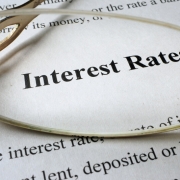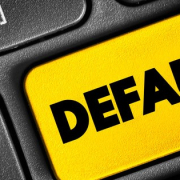Expiring Interest Rates To Fuel Distressed Property Sales
An exponential increase in the cost of interest-rate caps—insurance that CRE borrowers with floating rates purchase to hedge against rate increases—may soon spawn a wave of property sales in an increasingly distressed market.
In 2019, the Mortgage Bankers Association estimated that up to one-third of all commercial property debt was floating rate, with most lenders requiring that borrowers hedge against an increase in the borrowing costs.
When interest rates were low, derivative contracts offering hedges on multimillion-dollar mortgages could be purchased for as low as $10K. Now—as the lion’s share of these insurance contracts are expiring—the cost of rate-cap hedges is as much as 10 times higher that it was a year ago, according to a report in the Wall Street Journal.
Few buyers who opted for floating-rate loans when borrowing costs were low anticipated they were going to have to rebuy a cap at the same time interest rates are peaking, the report said.
According to Michael Gigliotti, co-head of JLL Capital Markets NYC office, many property owners may not have the liquidity to pay the increased insurance costs. Gigliotti told WSJ he expects a surge in property sales this year from owners who chose to unload their assets rather than spend millions on a new rate cap.
“This is the margin call on the real estate industry,” Gigliotti said, warning that a flood of properties going on the block to avoid increased rate cap costs could turn into what he called a “first trigger” pushing down real estate values.
Interest rate caps typically enable a borrower to avoid paying additional interest rates beyond a fixed threshold. According to the WSJ report, speculative ventures, where investors acquire short-term, floating-rate debt to finance building renovations aimed at raising rents have the most exposure to the increased cost of rate-cap hedges.
Apartment owner Investors Management Group was cited as an example of the rate-cap conundrum facing property owners: in 2020, the firm took out a $24.4M loan on a 300-unit multifamily in San Antonio. The firm bought insurance that capped interest at 5%, with the hedge contract costing $22K.
The cap on the San Antonio apartment campus expires in September. The company estimates that purchasing a new two-year hedge will cost $1M—40% of the property’s annual net income.
Floating-rate mortgages on apartment buildings insured by Fannie Mae or Freddie Mac can require borrowers to put money into an escrow account to pay for a new rate cap when the old one expires.
A wave of property sales spawned by spiraling rate-cap costs would magnify an already intensifying credit crisis in commercial real estate. According to a new report from Bloomberg, almost $175B of global real estate debt already is distressed, four time more than any other sector in the global economy.
Rising interest rates and the accompanying economic downturn, which appears to be the overture of a looming recession, have created an expanding pipeline of potentially defaulting loans in an environment where property values and cash flows are under pressure in all global markets, Bloomberg reported.
Source: GlobeSt.










